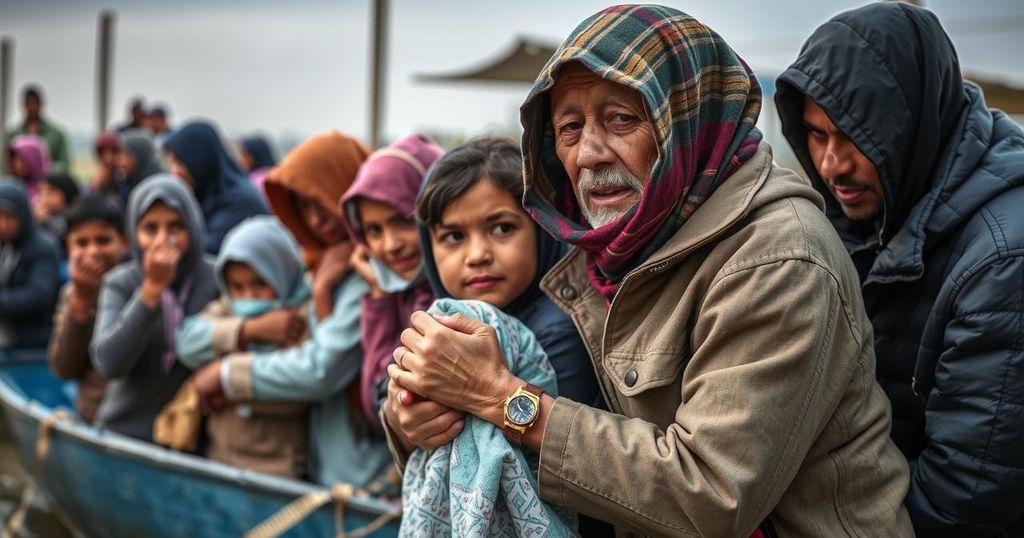UN Report Highlights Urgent Need for Addressing Refugee Conditions Amid Climate Crisis

The UNHCR has issued a report warning that climate change and violent conflict are increasingly worsening conditions for refugees. With millions displaced, particularly in developing countries, the report highlights the urgent need for funding and support. Concerns over rising global temperatures and insufficient infrastructure to address relocation needs are central to the report, as nations gather to discuss potential solutions and funding commitments.
A recent report by the United Nations High Commissioner for Refugees (UNHCR) highlights the increasingly precarious conditions faced by refugees due to the confluence of climate change and violent conflict. Climate shocks such as floods, droughts, and extreme weather events are exacerbating existing conflicts in countries like Sudan and Somalia, leading to heightened displacement. UNHCR Chief Filippo Grandi emphasized that the consequences are dire, stating that refugees often reside in developing countries highly vulnerable to climate-related risks, where the funding for adaptation remains critically insufficient.
In total, 120 million individuals have been forcibly displaced due to conflicts, while another 220 million have relocated within their nations owing to climate-induced disasters. As global temperatures continue to rise—2023 being recorded as the hottest year to date—these trends illustrate the urgent necessity of addressing both humanitarian and environmental challenges concurrently.
The current situation is particularly alarming for those in low-income nations, where people are frequently pushed to relocate to inhospitable regions lacking the necessary infrastructure to contend with climate impacts. Andrew Harper, UNHCR’s special advisor on climate action, described this alarming trajectory as a “hellish situation” that is growing increasingly severe.
In response to these challenges, recent discussions at COP29 in Baku have begun to address financial support for affected countries, with a pledge of $300 billion to be mobilized by 2035. Furthermore, UNHCR has articulated objectives aimed at protecting the vulnerable and facilitating transitions to sustainable and climate-smart services by 2030. Najeeba Wazefadost from Refugees for Climate Action has boldly urged leaders to acknowledge the urgency of these crises and incorporate refugee perspectives into actionable solutions.
The intersection of climate change and conflict has become a pressing issue for global stability and humanitarian safety. With millions displaced by wars and extreme weather patterns, the role of international organizations such as the UNHCR becomes critical in addressing the dual challenges of climate adaptation and refugee protection. The report underscores the dire consequences of neglecting these crises, especially for vulnerable populations residing in developing nations, which lack the resources to manage such adversity effectively. As climate-related disasters grow more frequent and severe, the call for enhanced funding and support systems is paramount to mitigate the impact of these dual crises on displaced populations. This situation necessitates a collaborative global response to empower refugees and assist in transitional efforts that foster resilience against climate disruptions.
In conclusion, the UNHCR report vividly illustrates the multifaceted challenges confronting refugees as a result of climate change exacerbated by violent conflicts. With an unprecedented number of displaced individuals, a significant funding gap persists in addressing their urgent needs, particularly in developing nations. Comprehensive global action and commitment are necessary to ensure support for refugees while transitioning to sustainable practices that mitigate the adverse effects of climate change. The voices of refugees must be integral to the solutions crafted to aid them in these tumultuous times.
Original Source: www.thecooldown.com






